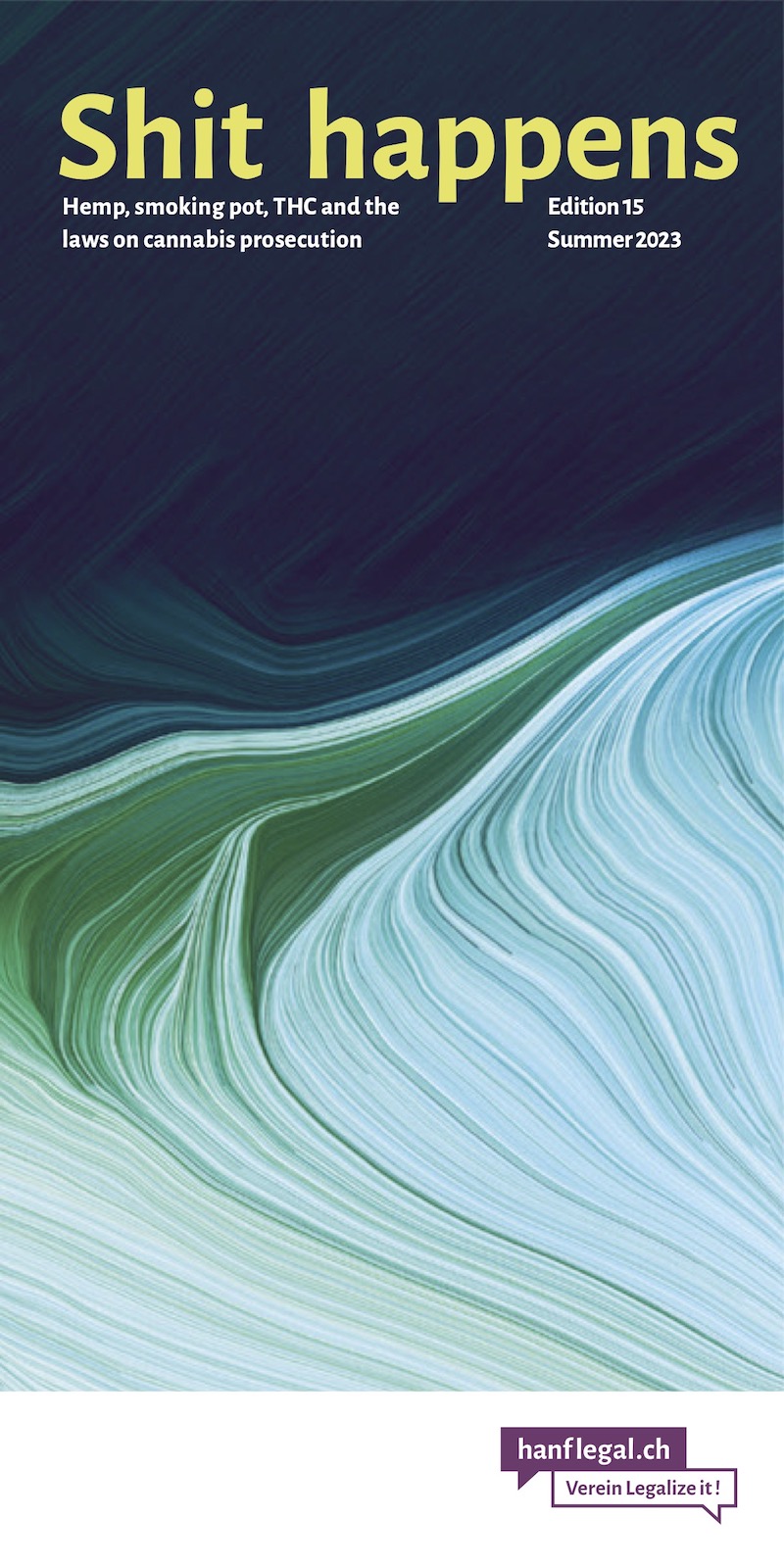- THC & Law:
Legalization dreams in California remain dreams
California Dreamin' - two years after the failure of the popular initiative “For a sensible hemp policy with effective protection of minors” (hemp initiative) in Switzerland, an initiative was also rejected in the US state of California on November 2, 2010.
The initiative in California called for the legalization of cannabis consumption, trade and cultivation. The so-called Proposition 19 would have brought about a legalization of hemp products for narcotic purposes, probably unique in the world, in addition to medical cannabis, which is already legal and heavily commercialized in California. The referendum campaign, which was characterized by fear-mongering and political gambits, ultimately ended with a majority of 53.8% of the voters rejecting the initiative.
The complete legalization of cannabis use for persons 21 years of age and older, limited legal home cultivation, and regulation and taxation of commercial cultivation and trade at the community level had been the main goals of the Californian counterpart to the Swiss hemp initiative. However, as in Switzerland, it has proven very difficult to change the status quo through a referendum. Of California's 58 counties, eleven have adopted the initiative. Since these included large population centers such as San Francisco and Oakland, and the initiative was only narrowly defeated in the largest county, Los Angeles, the initiators achieved a respectable success with 46.2% of the vote in favor.
Broad support for the initiative
For a long time, things looked good for the proponents of Proposition 19 in California. Numerous celebrities from the entertainment industry, former police chiefs, large sections of the Democratic Party, legal scholars, and even former Mexican President Vicente Fox advocated acceptance of the referendum. The initiative caused a sensation internationally and once again stimulated discussions in many places about unreasonable drug and prohibition policies. For many, the case was clear: legalization would have relieved the already overburdened judiciary and police (arrests for marijuana possession increased by 127% in California between 1990 and 2008), taken away part of the market from the Mexican drug cartels, which are said to generate up to 60% of their revenues from the cannabis trade, and last but not least, given people back a piece of freedom. For months, various polls predicted that the initiative would be approved. However, the prospect of defeat mobilized opponents and critics of the initiative once again shortly before the vote.
Political intrigues and fear-mongering
A month before the election, the Republican governor of California, Arnold Schwarzenegger, signed a law that made the possession of up to 28 grams of marijuana a misdemeanor. Suddenly, the punishment for marijuana possession was lowered to a maximum of US$100 at fine, which of course did not boost the urgency of the legalization effort and was probably also directed against a political success of the Democrats, who had a majority in favor of legalization.
Adding to the political gamesmanship, talk shows and media voting campaigns outlined horror scenarios. Stoned school bus drivers, nurses smoking a joint before surgery, the powerlessness of employers in the face of drug-addicted employees, and the like were all put forward as consequences of passing the initiative against Proposition 19. Conservatives also argued that legalizing drugs would send the “wrong signal.” This argument was also heard from the opponents of the hemp initiative in Switzerland.
Too much power at the local level
The initiative sought to introduce the possibility of taxing cannabis trafficking. The counties would have been given the authority to do so. This could have led to a confusing legal situation, and local authorities would have had a great deal of power in setting tax incentives. This did not sit well with many politicians and officials, including Arnold Schwarzenegger. They feared legal and social chaos and would have preferred to see the state given the right to regulate and tax cannabis uniformly. Considering that cannabis sales in California were recently estimated to be as high as US$14 billion, the tax revenue that could be made at the state level would be a boon to heavily indebted California.
Too little support for growers
Another hurdle the initiative could not overcome was the lack of support from the legal providers of “medical marijuana,” known as dispensaries, and the illegal growers in California. Both groups would have only suffered losses as a result of Proposition 19's passage. While many users of prescription medical hemp would have switched back to non-medical weed and hashish, those representing the illegal drug supply would also have been among the losers from legalization. Prohibition of cannabis guarantees higher prices for both sides. In addition, people who are otherwise pro-cannabis often criticized the text of the referendum bill and expressed fears of too much regulation and taxation. For example, the vote was lost in the traditional cannabis growing region of the Emerald Triangle.
No end to legalization efforts in California and the U.S.
The defeat of Proposition 19 does not mean the end of efforts to legalize cannabis. Those who lost the vote see a generational problem and are looking confidently to upcoming initiatives and bills. Initial analyses of the voting results have shown that younger voters in particular put a yes in the ballot box. This indicates that soon a generation that is no longer afraid of cannabis or unreflectively rejects it could represent the majority of the population.
Because of the Proposition 19 vote, other legalization efforts in California have gone quiet. For example, the so-called “Amianno Bill,” a bill calling for legalization and taxation at the state level, remains in the consultation process.
The U.S. will continue to play an important pioneering role in the global push back against cannabis prohibition. Fifteen states have now introduced legislation for medical cannabis use and cultivation, and over a dozen states have decriminalized cannabis use. These are very encouraging signs from a corner of the world that has contributed significantly to de facto global cannabis prohibition. What once started as a series of racist laws in the U.S., and often imposed on most nations through international treaties at the global level, may be pushed back by trends in the United States in the foreseeable future. These developments will not go unnoticed in our country either and will influence many politicians and opinion makers in our favor.
Proposition 19
The California Marijuana Legalization Initiative, which was voted on November 2, 2010, sought to establish the following regulations for non-medical cannabis:
- Possession is legal up to one ounce (28.35 grams) for personal use for people 21 and older.
- Cultivation for personal use is legal to a maximum of 2.32 square meters (indoors or outdoors) per household per lot for persons 21 years of age and older.
- Cities and counties can regulate the cultivation, transportation, and sale of cannabis and impose taxes on these activities.
Support our work with a donation:
Bank transfer
Account number (IBAN):
CH02 0900 0000 8709 1354 3
Full account details
Or scan this QR code with your eBanking App (ZKB, Revolut, Postfinance, …):

Or open/share the QR code as PDF file with your eBanking App.
Credit card
Donate via credit card
Verein Legalize it!
Quellenstrasse 25
8005 Zürich
Threema ID 7NH65RBY
Don’t miss anything! Follow us on social media:


